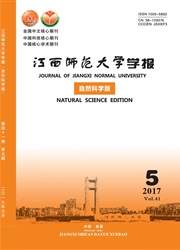

 中文摘要:
中文摘要:
构建花生过敏小鼠模型,经腹部皮下注射抗原疫苗治疗小鼠,观察治疗小鼠体征;测定小鼠血清中特异性IgE和lgG2a水平;检测小鼠脾细胞培养上清液中IL-4和IFN-γ水平,进行小鼠小肠切片HE染色,以探讨新型抗原疫苗Ara h2-IL-18对由花生引起的肠粘膜过敏反应小鼠模型的免疫治疗疗效及作用机理。实验表明:新型疫苗Ara h2-IL-18特异性免疫治疗可使小鼠过敏症状减轻,治疗后小鼠血清中特异性IgE水平降低,特异性Ig2a水平升高,小鼠脾细胞培养上清液中IL-4水平下降和IFN-γ水平上升。另外,肠道组织HE染色显示,Ara h2-IL-18治疗组小鼠小肠绒毛结构较清晰,顶部略有糜烂现象。新型疫苗Ara h2-IL-18可减轻过敏小鼠肠道炎症反应,具有特异性治疗花生过敏疾病的潜能。
 英文摘要:
英文摘要:
To investigate the effect of a peanut allergen vaccine on inhibiting the allergic inflammation in the mouse intestine. A food allergy mouse model was created,the mice were injected( i. p. )with a peanut allergen. Then,the allergic signs were observed,a serum level of specific IgE and lgG2a was determined by ELISA. Level of cytokines in the supernatant of splenocyte culture was assayed by ELISA. The intestinal tissue structure was evaluated by mi-croscopy. The vaccination inhibited food allergy signs,reduced the levels of specific IgE in the serum and increased the levels of specific lgG2a. the expression of IL-4 reduced in splenocyte culture supernatant,and the expression of IFN-γ increased. The HE stain shows that the tissue of intestinal mucosa was improved in the Ara h2-IL-18 treated group. The allergen vaccination of Ara h2-IL-18 can inhibit the allergic inflammation in the intestine and therapeutic potential to treat peanut allergy.
 同期刊论文项目
同期刊论文项目
 同项目期刊论文
同项目期刊论文
 期刊信息
期刊信息
